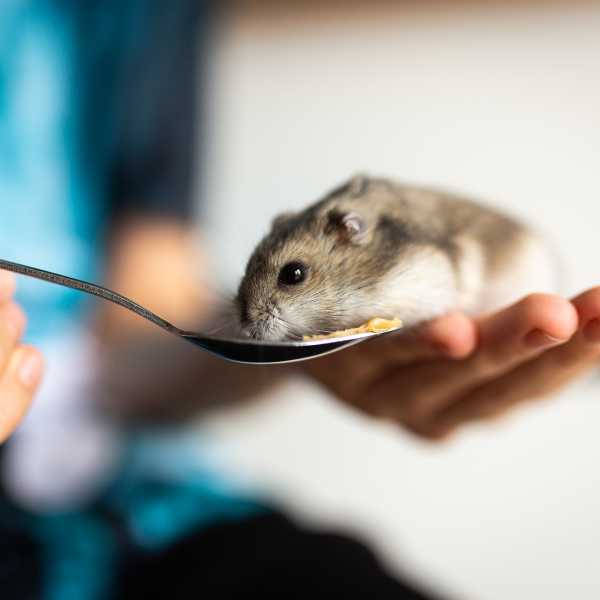
6 Ways To Be A More Sustainable Pet Owner
Posted on 15 November, 2022

Photo by Drew Dizzy Graham on Unsplash
Written by Nataša Dragojlovic from truepetstory.com for Homesitters Ltd
As humans, we all have a significant environmental impact, but what about our canine friends and their pawprint on the planet? When it comes to pets, you should know that they also have a sizable effect on the environment and wildlife.
It is all about how you feed your furry friend, treat them, and clean up after them. We will show you 6 ways to be a more sustainable pet owner since sustainable pets are always in style!
1. Adopt, Do Not Buy
Unfortunately, many breeders keep puppies in cruel conditions because they can not sell them or put them up for adoption. If you adopt from a rescue or a shelter, you are helping combat overpopulation, which has a negative impact on the environment.
The more animals we have, the more food we need, and therefore more waste we have. So, look out in a local shelter instead of buying from a breeder. Adopting means saving a life as well as our environment!
2. Choose Your Pet Food Wisely
Every pet parent wants the best healthy diet for their furry friends, so you should consider choosing an organic pet food. It is more eco-friendly, and it contains a much higher level of nutrients, such as protein, vitamin C and many minerals.
Also, research shows that organic farms release about 40% fewer carbon emissions and use about 45% less energy. Furthermore, if possible, buy pet food in bulk and from a locally owned pet store in order to cut down on greenhouse gas emissions, which are related to shipping products long distances.
This way, you keep your pet’s environmental pawprint small. Likewise, according to a 2017 Ecology Center study, you should avoid canned pet food since it often contains toxins that can hurt your pet friend.
3. Spay or Neuter Your Pets
If you want to lessen the burden of animal overpopulation and prevent animal abuse as well as euthanization rates, you should consider spaying or neutering your pet. Besides having health benefits, such as decreasing the risk of cancer, it also stores a lot of food, energy, and resources that otherwise would be spent on them.
Based on Human Society research, neutered male dogs live 18% longer, and spayed female dogs live 23% longer. When it comes to cats, spayed female cats in the study lived 39% longer, and neutered male cats lived 62% longer.
4. Careful with Pet Waste
It is important to remember that pet waste contains pathogens and germs. If you leave it in the natural environment, it can cause health problems. It is possible that the pathogens from a waste leak into the groundwater supply or streams where people swim.
Also, other pets can eat faeces and get worms or other serious health problems. Thus, you should always use biodegradable poop bags since they are made of resin derived from plants, vegetable oils, and compostable polymers, which break down entirely over time.
Further, you can try composting pet faeces, but it must be done separately and for a longer time, to kill all pathogens. Afterward, you can use it to shade trees, shrubs, and houseplants or to feed non-edible plants.
When it comes to cat litter, avoid one that includes clay (even though they are most common) because it can be harmful to both environment and cats. The good news is there are a variety of sustainable alternatives, such as corn kernels, bamboo, organic gravel, or pine.
5. Eco-Friendly Pet Furniture and Toys
Regarding pet furniture and toys, you should also read labels and buy organic bedding, toys, collars, and leashes made from sustainable materials (hemp, bamboo, rubber) or recycled waste. You should also:
- limit the number of toys you have that have harmful plastics in them
- have a look at yard sales for used pet toys instead of buying a new one
- remove any plastic parts that your furry friend might be able to swallow
6. Go Chemical Free at Home
As a responsible pet parent, you want the best for your dog, which should be the same for our planet. So, make sure to go chemical-free at home when using cleaning products or pet shampoos. Here are some things you should do to keep our environment safe:
- avoid strongly scented products
- choose plastic-free products
- use eco-friendly shampoos and soaps (free from toxic chemicals)
- regularly groom your pets
Chemical-filled products can irritate your pet’s skin and be harsh on their hair, but those non-toxic shampoos and soaps prevent fleas and ticks, and harmful chemicals, from leaking into the water drains.
Bottom Line
In a nutshell, humans have a great impact on our planet, but our furry friends have too. So, to keep our planet safe and clean, we should try our best to be as sustainable pet owners as we can.
At least we can do, is adopt instead of buying from a breeder, wisely choose pet food, and spay or neuter our pets to prevent overpopulation.
Also, we should properly handle pet waste (biodegradable poop bags, composting), choose pet toys and furniture from natural materials, and go chemical free at home.
Natasa Dragojlovic is a vet student and author for TruePetStory. Her love for our four-legged friends made her pursue a career as a vet, but her writing career hasn’t suffered either.
Tags:



